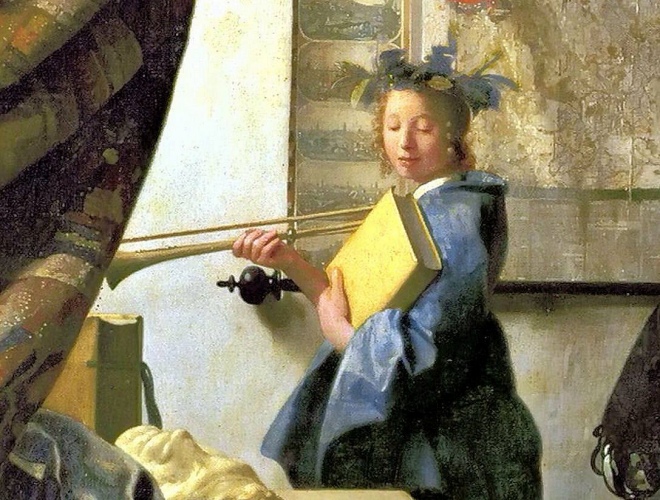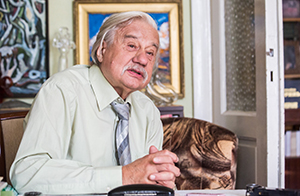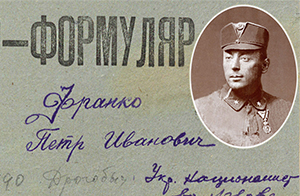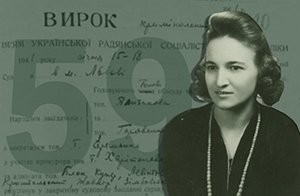Науковий семінар з історії Центрально-Східної Європи зробив заяву щодо російсько-української війни
Науковий семінар з історії Центрально-Східної Європи, що діє при кафедрі історії Національного університету "Києво-Могилянська академія", закликає науковців припинити контакти з РФ та підтримати українських істориків
Науковий семінар з історії Центрально-Східної Європи, що діє при кафедрі історії Національного університету "Києво-Могилянська академія", підготував звернення щодо російсько-української війни.
Історики закликають міжнародну академічну спільноту припинити особисту та інституційну співпрацю з російськими установами, не брати участь у жодних російських наукових проєктах, не фінансувати російську науку, а також запровади нерезидентні програми підтримки тих учених-істориків, що залишаються в Україні.
Звернення підготовлене англійською мовою, адже спрямоване воно на міжнародну аудиторію. Заява відкрита для підписання особами та організаціями за лінками: для окремих підписантів тут, а для організацій тут. Текст заяви подано нижче.

OFFICIAL STATEMENT ON THE RUSSO-UKRAINIAN WAR
RESEARCH SEMINAR IN EASTERN AND CENTRAL EUROPEAN HISTORY
The Research Seminar in Eastern and Central European History is among the oldest and the most influential networks of humanitarians in independent Ukraine. It was founded in 1995 by Professor Natalia Yakovenko and has been informally operating on the basis of the Department of History of the National University of Kyiv-Mohyla Academy (Kyiv, Ukraine) for the last more than 25 years.
As representatives of the Research Seminar in Eastern and Central European History, we publish this official statement calling Ukrainian and global academia for solidarity.
On February 24, 2022, the Russian Federation attacked sovereign Ukraine. It launched the active phase of the Russo-Ukrainian War that started in 2014 when the Russian Federation occupied the Autonomous Republic of Crimea as well as parts of the Donetsk and Luhansk regions of Ukraine. We, representatives of the Research Seminar in Eastern and Central European History, strongly condemn the Russian Federation's war against Ukraine.
After the month of the war in Ukraine the entire World witnessed the inhuman atrocities of the Russian Federation against Ukrainian civilians. As of April 15, 2022, the Office of the High Commissioner for Human Rights of the United Nations confirmed that at least 1,982 civilians are killed and 2,651 are injured.
Yet, these numbers could be hugely underestimated, because the precise calculations are impossible during an active phase of the war. Recently published horrific evidence from Mariupol, Bucha, Irpin, Borodianka, Hostomel, Chernihiv, Kharkiv, Kramatorsk prove that Russian Federation has been committing war crimes on the territory of Ukraine: thousands of civilians were tortured and executed, women and children were raped, hundreds of children were murdered or orphaned.
Because of that General Assembly of the United Nations suspended Russian Federation's membership in the Human Rights Council. The collected evidence of the Russian Federation's atrocities against Ukraine has already been transferred to the International Criminal Court. The Russo-Ukrainian War led to a global refugee crisis. Recent official updates from the Refugee United Nations Agency declare that over 6.5 million are displaced inside Ukraine and 3.7 million people have been forced to flee the country.
At the same time, the Russian Federation is destroying the cultural heritage of Ukraine and threatening the World Heritage Sites, such as the medieval Saint Sophia Cathedral in Kyiv. According to the Ministry of Culture of Ukraine, more than 150 objects of cultural heritage, namely libraries, archives (including KGB archives) and museums were completely destroyed.
One of the buildings of the oldest modern Ukrainian university – Karazin National University in Kharkiv – was devastated completely as well. Finally, "on average two per day: Russia's war against Ukraine damaged and ruined at least 59 spiritual sites in at least 8 regions of Ukraine."
Uncompromising sanctions were imposed on the Russian Federation. Firstly, an unprecedented system of economic and political sanctions was implemented: some major Russian state banks were disconnected from the SWIFT system and their assets were frozen. Secondly, the World began abandoning Russia's energy services en masse – gas, oil and coal.
Recently the possibility of a coal and gas embargo was considered by the European Union. Thirdly, over 750 global companies ceased operations in Russian Federation, and this number is increasing. Finally, the Russian Federation was excluded from nearly 90-95% of international sports competitions, and this percentage is growing as well.
We, representatives of the Research Seminar in Eastern and Central European History, insist that Ukrainian sanctions against Russian Federation must reflect and complement the uncompromising scale of global sanctions. The toleration of interrelations with the Russian Federation over 2014-2022 after Crimea, Donetsk and Luhansk regions were cut off from Ukraine now costs human lives. Ukraine must suspend every possible cooperation with the Russian Federation as this is the only way to defeat the aggressor.
Almost all the academic institutions in the Russian Federation openly supported the Russian Federation's attack on Ukraine. On March 4, 2022, the Russian Union of Rectors accompanied by over 250 universities published a statement supporting the Russian so-called "denazification" of Ukraine.
Moreover, students of the Moscow State Institute of International Relations supported the Russian war against Ukraine in their "appeal" to the President of Ukraine. At least three academic institutions – Moscow School of Social and Economic Sciences, European University in St Petersburg and German Historical Institute in Moscow – remained silent about the Russian Federation's attack on Ukraine. Only the Russian Academy of Sciences published an official letter against propagandistically shaped "confrontation in Ukraine"/"military conflict."
We, representatives of the Research Seminar in Eastern and Central European History, strongly condemn Russian academic institutions that support the Russian Federation's attack on Ukraine, as well as those who remain silent or use propagandistic terminology to label the Russo-Ukrainian War. We proclaim that there is no room for neutrality or conceptual "glass bead games" when it comes to the life and safety of Ukrainians.
We insist that the Russo-Ukrainian War is neither a 'crisis,' 'conflict,' 'invasion,' or a 'Putin's war.' This is the Russian Federation's war against Ukraine, fully supported, according to recent polls, by nearly 74% of Russian citizens.
As nearly all Russian academic institutions support the killings of innocent people and children in Ukraine, we call for the following:
-
Personal and institutional cooperation with Russian academic institutions, especially those under federal jurisdiction, must end. Participation of academicians affiliated with Russian academic institutions in every possible academic conference, scholarship, internship, fellowship, research / travel grant or exchange must be terminated. Similarly, participation of international scholars in academic conference, scholarship, internship, fellowship, research / travel grant or exchange organized by the Russian Federation must be banned as well. Russian scholars must be removed from the editorial boards of international journals, and international scholars must resign from editorial boards of Russian academic journals. Finally, academicians with Russian academic affiliation must be left aside from the global practice of blind peer-reviewing.
-
Investments of international academic institutions into Russian universities and research institutions, especially those affiliated with Gazprom and Oboronprom, as well as Russian funds into the international academic institutions must be fully eliminated. Russian Federation uses international investments in science to finance killings in Ukraine. The topmost universities have already confirmed that their cooperation with Russian academic institutions if there was such, has been terminated. The president of the Massachusetts Institute of Technology Leo Rafael Reif in consultation with senior leadership determined that "MIT's relationship with the Skolkovo Institute of Science and Technology (Skoltech) must end." The Vice-Chancellor of the University of Cambridge, Stephen J. Toope, underlined that "the Cambridge University Endowment Fund has no direct investments in Russia, and only negligible indirect exposure through pooled investments."
-
International academic institutions should increase the number of short- and long-term non-residential scholarships to support Ukrainian scholars. Numerous international universities and research institutions offered opportunities to host Ukrainian scholars. However, many scholars do not want to leave Ukraine as they are sure that national intellectual life must go on in Ukraine, not abroad. In the other words, regarding legal restrictions and personal responsibility to keep academic activities in Ukraine residential scholarships are pointless when scholars stay in Ukraine. We invite global academia to create non-residential programs, such as the following: Non-Residential Fellowships to Support Ukrainian Scholars (Vienna, Austria) or AAJR-Fordham-NYPL Fellowship for Ukrainian Scholars (Chicago, USA).
If you share our values and determination to help Ukraine, please, sign this letter. The Russo-Ukrainian War cannot be stopped if we continue legitimizing it via contacts with the academic institutions of the Russian Federation.
Best regards,
Research Seminar in Eastern and Central European History
_________________________________
THIS STATEMENT IS OPEN FOR SIGNING BY MEMBERS OF THE RESEARCH SEMINAR IN EASTERN AND CENTRAL EUROPEAN HISTORY AS WELL AS EVERY REPRESENTATIVE OF UKRAINIAN AND GLOBAL ACADEMIA, INCLUDING STUDENTS, STAFF AND ALUMNI. WE ENCOURAGE ACADEMIC AND RESEARCH INSTITUTIONS TO SIGN THE LETTER AS WELL.
_________________________________
TO SIGN THE STATEMENT AS AN INDIVIDUAL, PLEASE, FILL IN THIS FORM.
TO SIGN THE STATEMENT AS AN ACADEMIC ORGANIZATION, PLEASE, FILL IN THIS FORM.
_________________________________
THIS LETTER HAS BEEN SIGNED BY:
ORGANIZATIONS:
-
Ukrainian Association for Research in Women's History (Kyiv, Ukraine).
-
International Peer-reviewed Journal "Ukraina Moderna" (Lviv-Kharkiv, Ukraine)
INDIVIDUALS:
-
Doctor, Professor Natalia Yakovenko, PhD, Professor of Early Modern Polish-Lithuanian History, National University of Kyiv-Mohyla Academy (Kyiv, Ukraine), Founder & Co-Chair of the Research Seminar in Eastern and Central European History.
-
Doctor, Professor Larysa Dovha, PhD, Professor of Early Modern Ukrainian Culture, National University of Kyiv-Mohyla Academy (Kyiv, Ukraine), Co-Chair of the Research Seminar in Eastern and Central European History.
-
Doctor, Professor Natalia Starchenko, PhD, Senior Researcher, Мykhailo Hrushevsky Institute of Ukrainian Archeography and Source Studies, National Academy of Sciences of Ukraine (Kyiv, Ukraine), Assistant of the Research Seminar in Eastern and Central European History.
-
Doctor, Professor Maksym Yaremenko, PhD, Professor of Early Modern Religious History, National University of Kyiv-Mohyla Academy (Kyiv, Ukraine), Member of the Research Seminar in Eastern and Central European History.
-
Doctor, Professor Oleksii Sokyrko, PhD, Professor of Early Modern History of Ukraine, Taras Shevchenko National University of Kyiv (Kyiv, Ukraine), Member of the Research Seminar in Eastern and Central European History.
-
Doctor, Professor Volodymyr Masliychuk, PhD, Professor of Early Modern History of Eastern and Central Europe, National University of Kyiv-Mohyla Academy (Kyiv, Ukraine), Member of the Research Seminar in Eastern and Central European History.
-
Doctor, Professor Yurii Voloshyn, PhD, Professor of Early Modern History of Eastern and Central Europe, Poltava V.G. Korolenko National Pedagogical University (Poltava, Ukraine), Member of the Research Seminar in Eastern and Central European History.
-
Doctor, Professor Igor Serdiuk, PhD, Professor of Early Modern History of Ukraine, Poltava V.G. Korolenko National Pedagogical University (Poltava, Ukraine), Member of the Research Seminar in Eastern and Central European History.
-
Doctor, Professor Ihor Kondratiev, PhD, Professor of the World History, T.H.Shevchenko National University "Chernihiv Colehium" (Chernihiv, Ukraine), Member of the Research Seminar in Eastern and Central European History.
-
Doctor, Professor Ihor Kryvosheia, PhD, Professor of the World History, Pavlo Tychyna Uman State Pedagogical University (Uman, Ukraine), Member of the Research Seminar in Eastern and Central European History.
-
Doctor Tetyana Grygorieva, PhD, Professor of Early Modern History of Diplomacy, National University of Kyiv-Mohyla Academy (Kyiv, Ukraine), Member of the Research Seminar in Eastern and Central European History.
-
Doctor Ihor Teslenko, PhD, Professor of Early Modern Ukrainian History, Visiting Fellow of the Fitzwilliam College, University of Cambridge (Cambridge, United Kingdom) / National University of Kyiv-Mohyla Academy (Kyiv, Ukraine), Member of the Research Seminar in Eastern and Central European History.
-
Doctor Vadym Aristov, PhD, Senior Researcher, Institute of History of Ukraine, National Academy of Sciences of Ukraine (Kyiv, Ukraine), Member of the Research Seminar in Eastern and Central European History.
-
Doctor Volodymyr Spivak, PhD, Professor of Early Modern History of Philosophy, Academy of the State Penitentiary Service of Ukraine (Chernihiv, Ukraine), Member of the Research Seminar in Eastern and Central European History.
-
Doctor Oksana Prokopyuk, PhD, Senior Research Affiliate, National Kyiv-Pechersk Historical and Cultural Reserve, Member of the Research Seminar in Eastern and Central European History.
-
Doctor Kateryna Dysa, PhD, Associate Professor of History, National University of Kyiv-Mohyla Academy (Kyiv, Ukraine), Member of the Research Seminar in Eastern and Central European History.
-
Doctor Roman Kyselov, PhD, Senior Research Fellow, Shevchenko Institute of Literature, National Academy of Sciences of Ukraine (Kyiv, Ukraine), Member of the Research Seminar in Eastern and Central European History.
-
Doctor Yaroslav Zatyliuk, PhD, Research Associate, Institute of History of Ukraine, National Academy of Sciences of Ukraine (Kyiv, Ukraine), Member of the Research Seminar in Eastern and Central European History.
-
Mr Stepan Blinder, PhD Candidate in Slavonic Studies, Fitzwilliam College, University of Cambridge (Cambridge, United Kingdom), Member of the Research Seminar in Eastern and Central European History.
-
Doctor, Professor Giovanna Brogi, PhD, Professor Emeritus, University of Milan (Milan, Italy).
-
Doctor, Professor Frank Sysyn, PhD, Director, Peter Jacyk Centre for Ukrainian Historical Studies, Canadian Institute of Ukrainian Studies, University of Alberta (Edmonton, Canada).
-
Doctor, Professor Victor Ostapchuk, PhD, Associate Professor of Ottoman Studies, University of Toronto (Toronto, Canada).
-
Doctor, Professor Ola Hnatiuk, PhD, Professor of Central and East European History and Culture, University of Warsaw (Warsaw, Poland) / National University of Kyiv-Mohyla Academy (Kyiv, Ukraine).
-
Doctor, Professor Yaroslav Hrytsak, PhD, Professor of History, Ukrainian Catholic University (Lviv, Ukraine).
-
Doctor, Professor Natalia Khanenko-Friesen, PhD, Director, Canadian Institute of Ukrainian Studies, University of Alberta (Edmonton, Canada).
-
Doctor, Professor Zenon E. Kohut, PhD, Professor Emeritus, University of Alberta / Canadian Institute of Ukrainian Studies (Edmonton, Canada).
-
Professor, Doctor Tetiana Hoshko, PhD, Associate Professor, Department of History, Ukrainian Catholic University (Lviv, Ukraine).
-
Professor, Doctor Irena Makaryk, PhD, Distinguished University Professor, University of Ottawa (Ottawa, Canada).
-
Doctor, Professor Alexander Motyl, PhD, Professor of Political Science, Rutgers University-Newark (Newark, United States).
-
Doctor, Professor Agnieszka Gronek, PhD, Associate Professor, Department of Polish-Ukrainian Studies, Jagiellonian University (Cracow, Poland).
-
Doctor, Professor Lucyna Gebert, PhD, Professor of Slavic Linguistics i.q., Sapienza Università di Roma (Rome, Italy).
-
Doctor, Professor Bohdan Kordan, PhD, Professor Emeritus in Political Studies, University of Saskatchewan (Saskatoon, Canada).
-
Doctor, Professor Liudmyla Posokhova, PhD, Professor of Early Modern History of Ukraine, V.N.Karazin Kharkiv National University (Kharkiv, Ukraine).
-
Doctor, Professor Izabela Wagner, PhD, Associate Professor of Sociology, Collegium Civitas (Warsaw, Poland).
-
Doctor, Professor Ihor Lylo, PhD, Professor of History, Ivan Franko National University (Lviv, Ukraine).
-
Doctor, Professor Michael Moser, PhD, Professor of Slavic Linguistics, University of Vienna (Vienna, Austria).
-
Doctor, Professor Iryna Kryvosheia, PhD, Professor of Early Modern History of Ukraine, Pavlo Tychyna State Pedagogical University (Uman, Ukraine).
-
Doctor Oksana Kis, PhD, Leading Research Associate, Head of the Department of Social Anthropology, Institute of Ethnology, National Academy of Sciences of Ukraine (Lviv, Ukraine).
-
Doctor Kateryna Kyrychenko, PhD, Research Associate, Institute of History of Ukraine, National Academy of Sciences of Ukraine (Kyiv, Ukraine).
-
Doctor Olga Andriewsky, PhD, Associate Professor, Department of History, Trent University (Peterborough, Canada).
-
Doctor Liudmyla Sharipova, PhD, Assistant Professor, University of Nottingham (Nottingham, United Kingdom).
-
Doctor Valerii Zema, PhD, Senior Research Fellow, Institute of History of Ukraine, National Academy of Sciences of Ukraine (Kyiv, Ukraine).
-
Doctor Svitlana Potapenko, PhD, Senior Research Fellow, Мykhailo Hrushevsky Institute of Ukrainian Archeography and Source Studies, National Academy of Sciences of Ukraine (Kyiv, Ukraine).
-
Doctor Antonina Kizlova, PhD, Associate Professor, Department of History, National Technical University of Ukraine "Igor Sikorsky Kyiv Polytechnic Institute" (Kyiv, Ukraine).
-
Doctor Ivan Almes, PhD, Senior Lecturer, Ukrainian Catholic University, Ihor Skochylias Center for Religious Culture (Lviv, Ukraine).
-
Doctor Larysa Bilous, PhD, Research Associate, University of Alberta (Edmonton, Canada).
-
Doctor Natalia Zajac, PhD, Leverhulme Trust Early Career Fellow, John Rylands Research Institute and Library, University of Manchester (Manchester, United Kingdom).
-
Doctor Sofia Korol', PhD, Head, Department of Art History, Institute of Ethnology, National Academy of Science of Ukraine (Lviv, Ukraine).
-
Doctor Hanna Zaremba-Kosovych, PhD, Research Fellow, Institute of Ethnology, National Academy of Sciences of Ukraine (Lviv, Ukraine).
-
Doctor Vivien Prigent, PhD, Research Professor, Centre National de la Recherche Scientifique (Paris, France).
-
Doctor Olenka Pevny, PhD, Associate Professor of Early Slavonic and Ukrainian Studies, PhD Candidate in Slavonic Studies, Fitzwilliam College, University of Cambridge (Cambridge, United Kingdom).
-
Doctor Petro Dolhanov, PhD, Associate Professor, Department of Philosophy, Economics and Educational Management, Rivne Institute for Postgraduate Pedagogical Education (Rivne, Ukraine).
-
Doctor Oksana Ovsiiuk, PhD, Ukrainian Catholic University (Lviv, Ukraine), Editor-in-Chief at "Ukraina Moderna".
-
Doctor Ivanna Cherchovych, PhD, Research Fellow, Institute of Ethnology, National Academy of Sciences of Ukraine (Lviv, Ukraine).
-
Doctor Olha Martynyuk, PhD, Professor/Post-Doctoral Fellow, National Technical University of Ukraine "Igor Sikorsky Kyiv Polytechnic Institute" (Kyiv, Ukraine) / University of Basel (Basel, Switzerland).
-
Doctor Nataliia Sinkevych, PhD, Postdoctoral Researcher, Ludwig Maximilian University of Munich (Munich, Germany).
-
Doctor Anna Geisherik, PhD, Lecturer, Russian Program Coordinator, Stony Brook University (New York, United States).
-
Doctor Ksenya Kiebuzinski, PhD, Slavic Studies Librarian, University of Toronto (Toronto, Canada).
-
Doctor Anastasiia Bozhenko, PhD, Senior Teacher of History of Ukraine, V.N.Karazin Kharkiv National University (Kharkiv, Ukraine).
-
Doctor Oleksandr Avramchuk, PhD, Post-Doctoral Fellow, Catholic University of Lublin (Lublin, Poland).
-
Doctor Olena Betlii, PhD, Research Associate, KU Leuven (Leuven, Belgium).
-
Doctor Andriy Zayarnyuk, PhD, Associate Professor, Department of History, University of Winnipeg (Winnipeg, Canada).
-
Doctor Ievgeniia Sakal, PhD, Adjunct Professor of Early Modern History, Quinnipiac University (Hamden, United States).
-
Doctor Olena Chernyakhivska, PhD, Head of Publishing Department, National Preserve "Kyiv-Pechersk Lavra" (Kyiv, Ukraine).
-
Doctor Rafał Panfil, PhD, Adjunct at History Department, Malbork Castle Museum (Malbork, Poland).
-
Doctor Serhiy Choliy, PhD, Associate Professor for History, National Technical University of Ukraine "Igor Sikorsky Kyiv Polytechnic Institute" (Kyiv, Ukraine).
-
Doctor Simone Attilio Bellezza, PhD, Assistant Professor at Department of Social Sciences, University of Naples Federico II (Naples, Italy).
-
Doctor Volodymyr Poltorak, PhD, Associate Professor, Odesa I. Mechnikov National University (Odesa, Ukraine).
-
Doctor Yana Prymachenko, PhD, Senior Researcher, Institute of History of Ukraine, National Academy of Science of Ukraine (Kyiv, Ukraine).
-
Doctor Andriy Starodub, PhD, Senior Research Fellow, Мykhailo Hrushevsky Institute of Ukrainian Archeography and Source Studies, National Academy of Sciences of Ukraine (Kyiv, Ukraine).
-
Doctor Oksana Kovalenko, PhD, Associate Professor, Poltava V.G. Korolenko Pedagogical University (Poltava, Ukraine).
-
Doctor Natalia Bilous, PhD, Senior Research Fellow, Institute of History of Ukraine, National Academy of Science of Ukraine (Kyiv, Ukraine).
-
Mr Bohdan Horodnytskyi, PhD Candidate in Early Modern Social History, Poltava V.G. Korolenko National Pedagogical University (Poltava, Ukraine) / MA Student in Eastern European Studies, University of Warsaw (Warsaw, Poland).
-
Mr Vladyslav Kryvoruchko, PhD Candidate in Economics, University of the State Fiscal Service of Ukraine (Irpin, Ukraine).
-
Mr Oleksii Rudenko, 2d year PhD Candidate in History, Central European University (Vienna, Austria).
-
Ms Yelyzaveta Piankova, Alumni 2021 History Department, National University of Kyiv-Mohyla Academy (Kyiv, Ukraine).
-
Mr Yuriy Dolzhenko, Master in History, Junior Researcher, Department of Bioarchaeology, Institute of Archaeology, National Academy of Sciences of Ukraine (Kyiv, Ukraine).
-
Mr Mykola Fediai, PhD Candidate in Philosophy, Institute of Philosophy, National Academy of Sciences of Ukraine (Kyiv, Ukraine).
-
Ms Tetiana Kuzyk, Senior Research Fellow, Мykhailo Hrushevsky Institute of Ukrainian Archeography and Source Studies, National Academy of Sciences of Ukraine (Kyiv, Ukraine).
-
Mrs Lyudmila Shpileva, Librarian, New York Public Library (New York, United States).
-
Mrs Kateryna Pasichnyk, PhD Candidate in History, Martin Luther University Halle-Wittenberg (Halle, Germany).
-
Ms Mariia Motuz, 4th year PhD Candidate in History, Borys Grinchenko Kyiv University (Kyiv, Ukraine).
-
Ms Tetiana Yevsieieva, PhD Candidate in History, Senior Research Officer, Institute of History of Ukraine, National Academy of Science of Ukraine (Kyiv, Ukraine).



